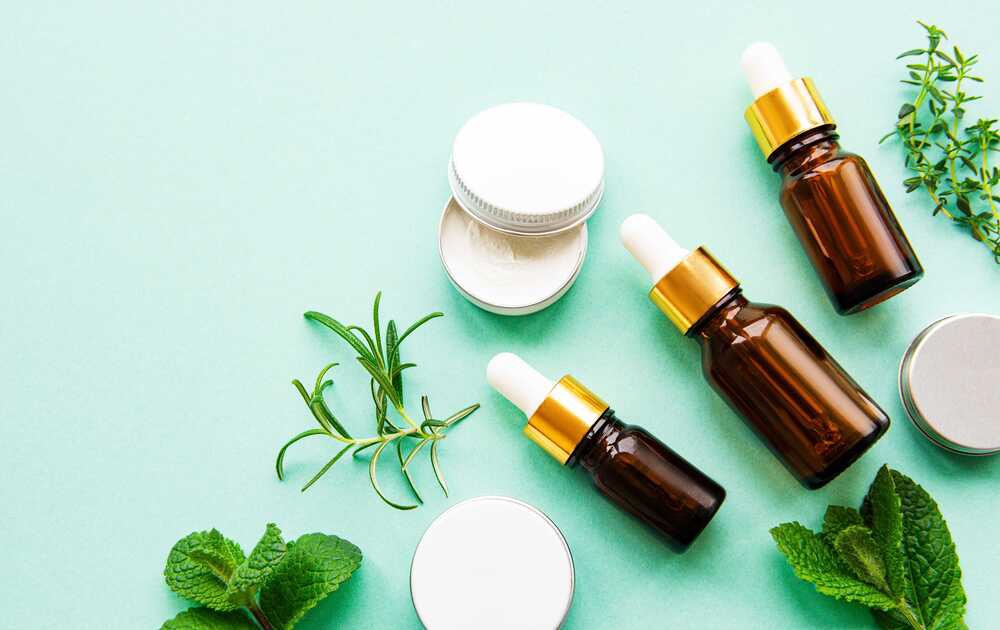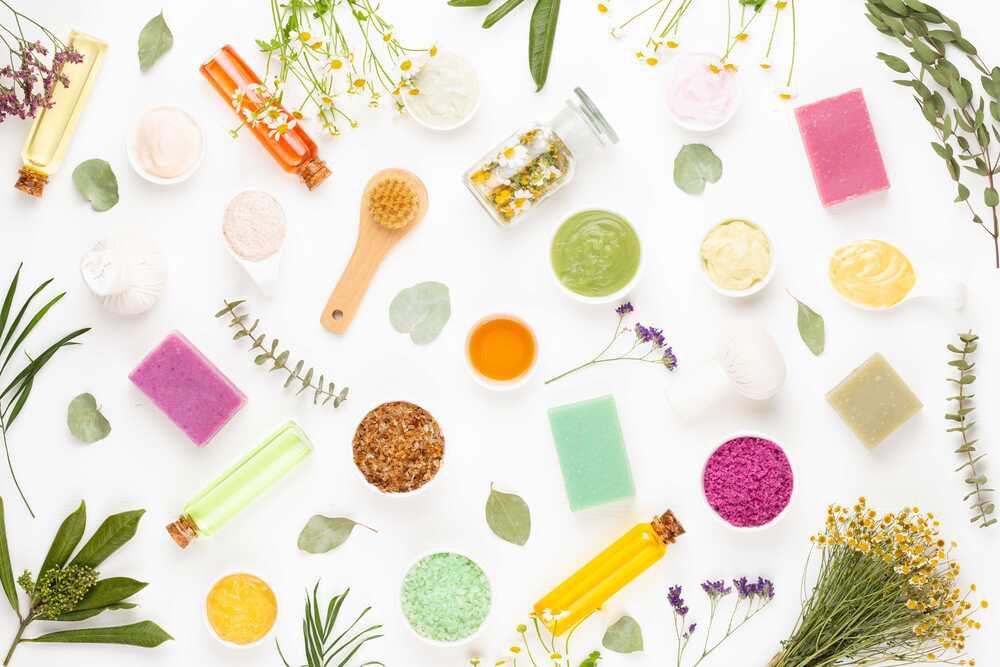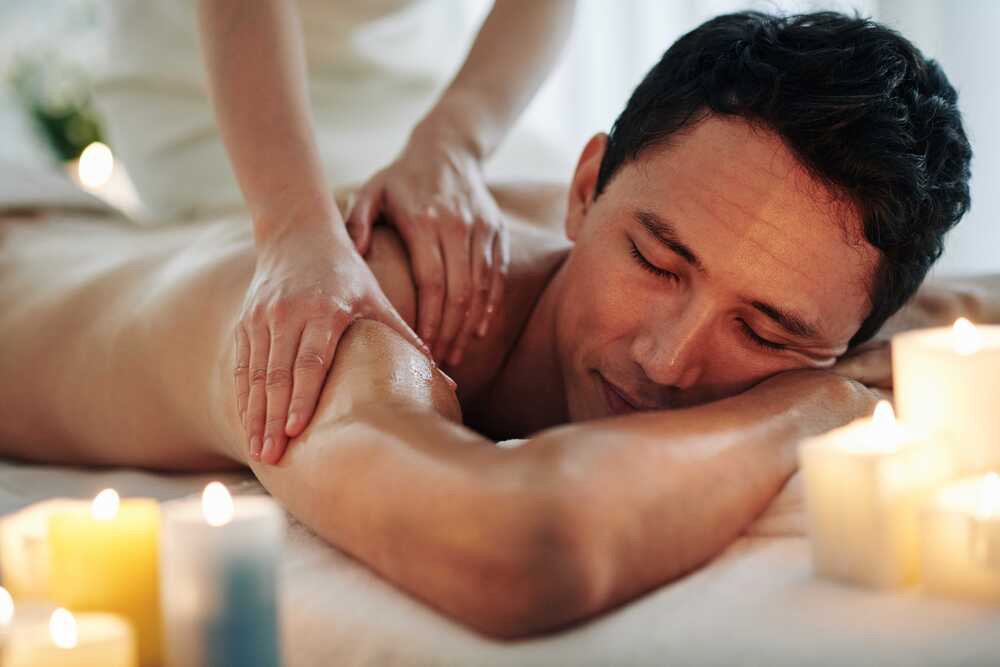Aromatherapy
Updated September 11, 2024
While scientists are always researching ways to manage chronic conditions, many time-tested therapies have endured thanks to their efficacy. Treatment with naturally occurring plant compounds that have evolved alongside humans is now so effective that scientists are investigating their medical applications.
Though its carrier oils aren’t approved by the Food and Drug Administration (FDA), aromatherapy is a safe and effective healthcare treatment for many of the afflictions people experience. By using oils extracted from plants, aromatherapists can target certain conditions to ease your symptoms and enhance your quality of life. The treatment has physical, emotional, and mental benefits.
As with any alternative medicine, understanding aromatherapy's potential, contraindications, and proper consumption methods will help you maximize your benefits from them. Essential oils are a life-changing treatment when used consistently with realistic expectations.

What is Aromatherapy?
Aromatherapy is the practice of extracting essential oils from plants, rendering them into a consumable compound, and then administering them as treatment. The oils can be inhaled, ingested, or applied topically.
The essential oil is the fundamental part of the plant, filled with beneficial compounds that give it its distinct scent and serve other anatomical functions. The treatment is part of a broader branch of holistic medicine called phototherapy, or plant therapy.
The medical community embraces the use of aromatherapy for its ability to treat the whole person, addressing both physical and mental health conditions.
Aromatic plants are often used alongside massage therapy, spa therapies, chiropractic care, and other holistic practices to center your mind during the treatment and optimize their health benefits.
How Long Has Aromatherapy Been Around?
Humans have used fragrant plants for ritual and healing for over 6,000 years. Plants were an abundant resource whose attractive scents drew people in. The modern practice of aromatherapy, in which the art blended with science, began in 1937 by the French chemist René-Maurice Gattefossé.
He accidentally burned himself and then immersed his hand in lavender oil. To his amazement, the burn healed and left no residual scarring. This discovery led him to investigate the healing nature of essential oils.
Aromatherapists
Aromatherapists are specially trained providers who can safely and effectively create oils used in aromatherapy. They specialize in evaluating individuals, determining the possible effects of different oils, and monitoring their clients' responses.
Aromatherapists are not overseen by a licensing entity. However, the National Association for Holistic Aromatherapy holds rigorous standards and training requirements for registered aromatherapists. An aromatherapist should always ask about your medical and health history to rule out potential complications for treatment.
How Does Aromatherapy Treatment Work?
The complete scientific understanding of aromatherapy is still developing. The growing knowledge is part of the evolving insights into brain function and neurodevelopment. Simply speaking, our sense of smell is an evolutionary necessity that helps keep us alive. It's part of why scent and memory are so closely linked.
Researchers believe that when inhaled, essential oils activate smell receptors in the nose. They then send a signal to the brain, stimulating the production of neurotransmitters and other chemicals tied to emotion and thought.
One leading theory proposes that aromatherapy works by jumpstarting the limbic system, the regulator for your emotions. Scientists also believe the treatment engages the hypothalamus, where the feel-good hormone serotonin is produced.
Topically applied and ingested essential oils are absorbed into the bloodstream and engage with cells to support and propel life functions or initiate a bodily response to stimuli. Aromatherapy treatment can also involve creams and distillations.
Benefits of Aromatherapy
Aromatherapy is an effective complementary therapy with remote and generally mild side effects. Using essential oils as an adjunct to conventional treatments for chronic conditions or taking them proactively to manage emotions and stress enhances your overall wellness.
The treatment can improve your day-to-day life, sharpen your mental clarity, and improve your mood while dealing with symptoms of illness or medical conditions. The most common reasons people use essential oils are to:
- Alleviate muscle and joint pain
- Help manage stress, agitation, tension, and anxiety
- Enhance sleep quality
- Manage the side effects of chemotherapy and help stabilize mood during hospice/palliative care
- Combat bacterium, viruses, and fungi on surfaces
- Support gut health, ease gastric distress, and improve digestion
- Strengthen the immune system and anti-oxidize
Aromatherapy Types and Uses of Essential Oils

Lavender Oil
This multi-functional oil produces a calming effect that eases anxiety and muscle spasms. Lavender also supports cell regeneration to enhance burn and wound healing. You can also use it to control itchiness, treat the skin, and soothe most insect bites.
Tea Tree Oil
Tea tree oil is extracted from a plant's natural defense system. As a result, it helps your immune system. Tea tree oil is antimicrobial, antibacterial, antifungal, and antiviral.
Frankincense Oil
Frankincense is a powerful anti-inflammatory that can help ease arthritis symptoms and improve gut health, which is critical for overall well-being. In addition, the oil improves asthma symptoms, promotes oral hygiene, and may provide some cancer prevention.
Peppermint Oil
Peppermint is an energizing oil that also relieves muscle aches and pain. Studies show it helps reduce nausea. It's also effective at relieving migraines and may help reduce their overall occurrence.
Eucalyptus Oil
Eucalyptus is a valuable cold and flu fighter. The oil clears phlegm from the airway and serves as a decongestant. It also has a revitalizing and energizing effect on the mind and body.
Lemon Oil
Lemon oil is antimicrobial and an antioxidant, making it a powerful immune booster. It also creates an uplifting feeling while easing stress.
Lemongrass Oil
Lemongrass is also a powerful antioxidant and anti-inflammatory. It helps manage headaches, bone pain, digestive pain, and diarrhea.
Orange Oil
Orange oil helps ease symptoms of anxiety and depression. It's also effective for easing gastric distress and muscle pain. Researchers believe its antioxidizing properties help with cancer prevention.
Rosemary Oil
Rosemary oil is a circulatory stimulant that is valuable for fighting colds and bronchitis. The oil eases respiratory congestion, improves the depth of breath, and clears sinuses. People often experience an energizing and mind-clearing effect as well.
Bergamot Oil
Bergamot oil, which is extracted from the rinds of citrus fruits, reduces pain, inflammation, and stress. It also may help treat food poisoning and other stomach issues.
Cedarwood Oil
Cedarwood oil reduces pain and inflammation. Studies show it helps promote sleep, eases anxiety, and improves circulation. Research shows it helps with menstruation by easing cramps and muscle spasms.
How to Use Essential Oils?

Essential oils can be inhaled, absorbed through the skin, or ingested. Each method influences the onset and longevity of the oil's effects. Consult with an aromatherapist to determine the optimal consumption method based on what you want from essential oils.
Diffuser
A diffuser is a small device that uses heat to break down and evaporate the oil. You then breathe in the vapor. It is the most common form of aromatherapy and often produces the greatest mental and emotional effects.
The scent activates smell receptors while the essence crosses the mucus membrane in your respiratory passages to enter your bloodstream.
Roller
A roller allows you to apply the oil to your skin. The device typically features a ball that attaches to a bottle. You simply invert the bottle. Then the oil absorbs into the ball. You apply the oil by wiping the device along the area you wish to treat.
This method takes longer to absorb, and you must leave the application untouched to allow the oil to permeate your skin and enter the bloodstream. Topical application is best for treating skin conditions, soothing itchiness, and promoting wound healing.
Ingest
Essential oils can be consumed orally. Depending on the type, you may ingest the oil directly, blend it into food, take it in a capsule, or add it to a drink. Excess doses of essential oils can harm your stomach, liver, and kidneys.
If you elect to ingest oils, you must do so under your doctor and a qualified aromatherapist's advice. Continually monitoring your health and response is critical for using them safely.
Are Essential Oils Safe?
Generally, essential oils are safe. As with anything you ingest, from food to prescription medication, your unique biochemistry dictates how your body absorbs, metabolizes, and reacts to the substances.
It's important to discuss your health history and allergies with your aromatherapist before starting treatment. You must also alert your physician about what essential oils you use to rule out any possible complications with prescription medications or other contraindications.
Consulting with a doctor is especially important if you have a history of hay fever, asthma, epilepsy, high blood pressure, eczema, or psoriasis.
Side Effects
Side effects are generally mild and resolve on their own once you discontinue the use of the oil. The following are the most common:
- Headaches
- Skin irritation and rashes
- Nausea
- Eye and nose irritation
- Asthma attacks
- Allergic reactions
Allergic Reactions to Essential Oils
Allergic reactions can include hives, rashes, sneezing, coughing, and swelling. Anaphylaxis is possible but extremely rare. If you have a negative reaction, suspend use and consult with a physician before continuing treatment with another essential oil.
Even if your initial reaction is mild, subsequent reactions will be more intense. Seek immediate medical care if you believe you're experiencing an allergic reaction.
How to Choose Essential Oils
You must be discerning when selecting essential oils. The products are not regulated by a government agency. There are no minimum standards for purity or ingredients. The best option is to consult with a trained aromatherapist and seek out reputable retailers.
It's also critical to begin with small doses of your chosen essential oil and gauge your reaction. If you experience adverse side effects, you should discontinue use immediately. If you experience the desired effects, you may then work up to larger doses and higher frequencies to determine your optimal treatment level.
Which Essential Oils are Best?
The best essential oils are labeled "pure" and "organic." This denotes they are derived from safely grown crops and contain only plant extracts. You should avoid products that are labeled "natural." This catchall term is meaningless and used for marketing purposes.
Be sure to check if the label identifies the oil as a "fragrance." This means it's combined with other chemicals. Although products are not required to be regulated, look for ones with a certification from Ecocert or the USDA. These are higher-quality products that manufacturers voluntarily submitted for review.
In addition, check for labels that identify the nation of origin and include the scientific name of the plant the oil was derived from.
How to Find Quality Essential Oils?
The Aromatherapy Registration Council has a searchable database of registered aromatherapists who have completed specialized training and received certification. These providers can connect you with high-quality essential oils.
Medical Marijuana FAQs
An aromatherapy massage is a conventional massage in which essential oils are blended into the massage oil or diffused in the massage room to relax muscles, facilitate circulation, and ease tension. They nourish the skin and maximize the emotional benefits of the massage.
An aromatherapy spa is a specialized spa facility that uses essential oils for its treatments. They may blend them into facial treatments, balms, or lotions used during treatment. Ask if the spa has a registered aromatherapist on staff guiding their essential oil use and blending.
Aromatherapy products can be bought through most major online retailers, health food stores, and other holistic centers. Many aromatherapists may stock products in their office as well.
You can burn oils using a specialized bowl or candle holder. You simply fill the reservoir with a few drops of your preferred oil and then light a tea light beneath it to heat and vaporize the oil.
Brick-and-mortar stores, online retailers, and holistic shops all sell aromatherapy candles. They are standard candles that are made with essential oils in the wax to diffuse the aroma as they burn. Candles with the fewest ingredients or that carry an "organic" label are generally best.
Many essential oils contain aldehydes and phenols, the compounds used by plants for their natural defense. As a result, their oils have antimicrobial properties that can kill viruses. Tea tree oil, lemongrass oil, and eucalyptus oil are the most powerful virus killers. They can be used on surfaces instead of harsh chemicals to sanitize and clean.
If you are immunocompromised, or if you sterilize products for medical use, do not use essential oils in place of other products. Consult with your doctor to confirm if essential oils are a viable alternative.
Oil diffusers are generally safe for dogs, but you need to be cautious about dosing. For humans, just a few drops can make a significant difference. This is true for dogs as well. Talk with your veterinarian before treating your dog with a diffuser. Discontinue use if you notice abnormal changes.
It depends on the oil. Dogs' noses are infinitely stronger and thus more sensitive to smells than humans' noses. While simply smelling oils is not usually unsafe, certain ones can be irritating or alter dogs' behavior.
While safe to smell, many oils are toxic if ingested by dogs. Be sure to be careful when using cinnamon, citrus, pennyroyal, peppermint, pine, sweet birch, tea tree, wintergreen, and ylang ylang oils.
Essential oils can kill fleas if your pet has them and be used as a repellent to prevent outbreaks. Combine six to seven drops of the rosemary, peppermint, eucalyptus, tea tree, and citronella oil with a cup of water and shake well.
Then apply the solution to your dog every other day using a spray bottle. Be sure to monitor your pet for skin reactions. Discontinue use and schedule a vet visit if you notice any rashes or irritation. Cats' skin is too sensitive to treat with essential oils.